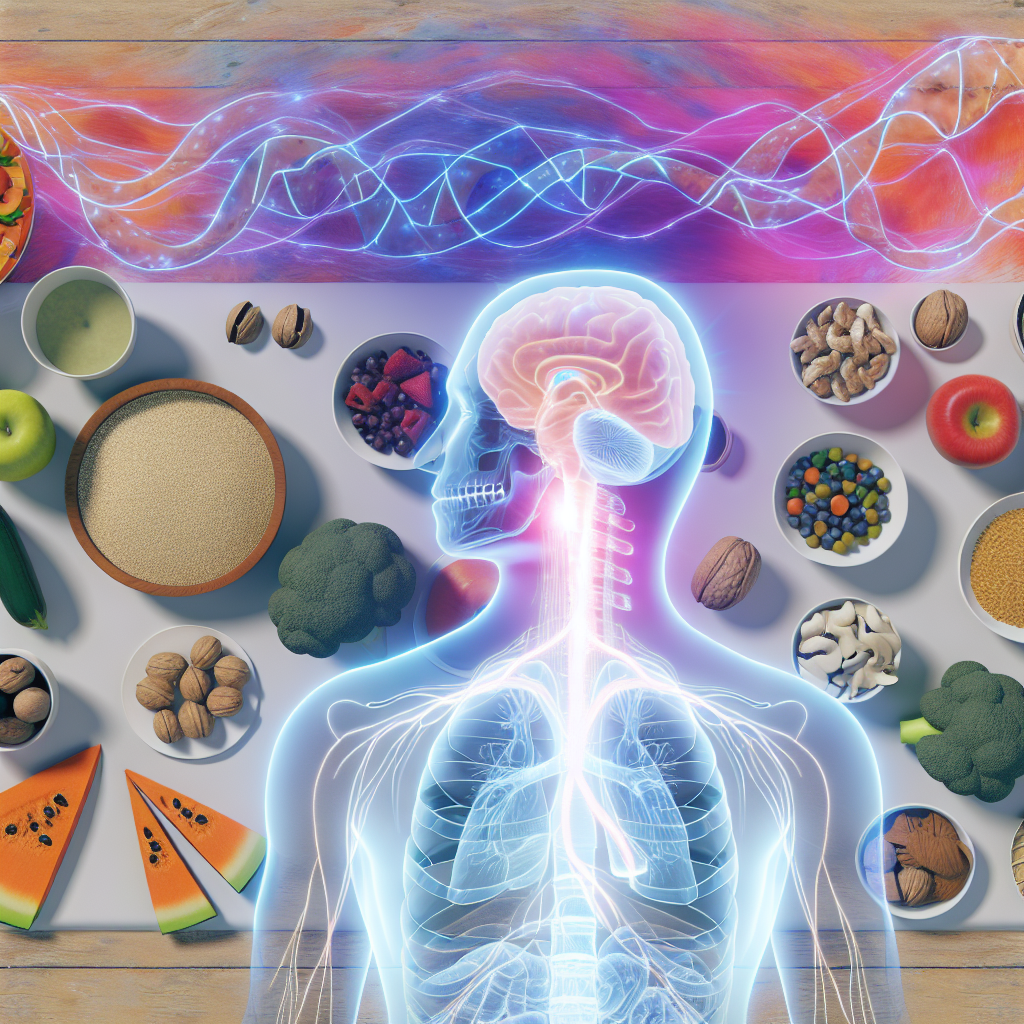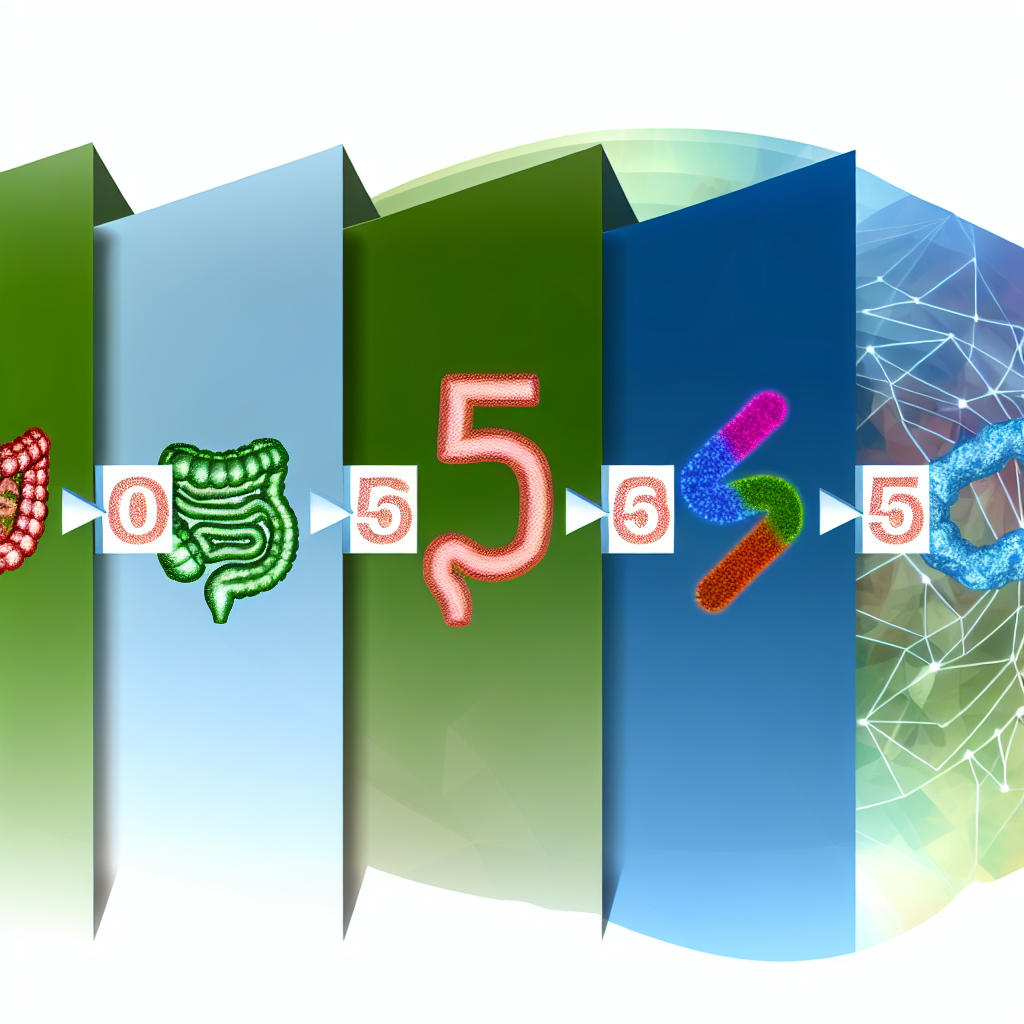The Vagus Nerve Diet: Food Combinations That Activate Parasympathetic Healing
Introduction
The vagus nerve, the longest cranial nerve in the body, plays a critical role in overall health and well-being. As the main component of the parasympathetic nervous system, it regulates stress responses, supports digestion, and promotes relaxation. When this nerve is activated, the body experiences healing, reduced inflammation, and improved resilience. Conversely, an underactive vagus nerve has been linked to anxiety, digestive issues, autoimmune conditions, and chronic stress.
One of the most effective ways to enhance vagus nerve function naturally is through diet. Certain foods have nutrients that stimulate the vagus nerve and activate the parasympathetic response. By focusing on strategic food combinations, individuals can significantly improve nervous system health, leading to better digestion, mental clarity, and emotional balance.
Scientific research highlights the strong connection between the gut and the brain, known as the gut-brain axis. Since the vagus nerve acts as the primary communication channel between these two systems, diet has a profound impact on nervous system function. Fermented foods, omega-3 fatty acids, polyphenols, and specific herbs all help to enhance vagal tone, reduce inflammation, and promote relaxation.
Beyond selecting the right foods, the way these foods are combined matters. Pairing probiotic-rich fermented foods with prebiotic fibers enhances gut health, which in turn strengthens vagus nerve activity. Similarly, consuming healthy fats with antioxidants improves nutrient absorption and supports brain health. Understanding these synergies allows individuals to optimize their diet for nervous system healing.
This article explores the key principles of the vagus nerve diet, highlights the best food combinations for parasympathetic activation, and reviews scientific studies that validate the connection between diet and vagus nerve function.
Scientific Studies on the Vagus Nerve and Diet
Recent research has reinforced the critical relationship between diet and vagus nerve function. Scientific studies reveal that specific nutrients and food combinations can stimulate the vagus nerve, reduce inflammation, and activate the body’s natural parasympathetic healing response.
The Gut-Brain Connection: How the Vagus Nerve Influences Digestion and Stress
A 2020 study published in Nature Reviews Gastroenterology & Hepatology emphasized the vagus nerve’s role in gut-brain communication. Research showed that probiotics and fermented foods positively influence gut bacteria, which in turn activate the vagus nerve, improving digestion and reducing stress responses ([Cryan et al., 2020](https://www.nature.com/articles/s41575-019-0257-0)).
Omega-3 Fatty Acids: The Anti-Inflammatory Powerhouse for Vagus Nerve Activation
Omega-3 fatty acids, found in fatty fish, walnuts, and flaxseeds, have been shown to stimulate the vagus nerve while decreasing systemic inflammation. A 2011 study in *Brain, Behavior, and Immunity* found that omega-3 supplementation increased vagal tone and lowered inflammatory markers, showcasing the neuroprotective benefits of these essential fats ([Willette et al., 2011](https://www.sciencedirect.com/science/article/abs/pii/S0889159110003184)).
Polyphenols: Natural Neuromodulators for Brain and Vagus Health
Polyphenols, abundant in berries, dark chocolate, green tea, and red wine, have been found to improve brain function and vagus nerve stimulation. A study published in *Frontiers in Neuroscience* demonstrated that polyphenols enhance cognitive function, protect against neurodegeneration, and improve vagal tone ([Gomez-Pinilla, 2019](https://www.frontiersin.org/articles/10.3389/fnins.2019.00099/full)).
Prebiotics and Probiotics: The Gut Microbiome’s Link to Vagus Nerve Function
A 2015 article in *Frontiers in Psychiatry* examined how dietary intake of prebiotic fibers (found in garlic, onions, and bananas) along with probiotic-rich foods (like yogurt, kimchi, and sauerkraut) improved gut flora and directly stimulated vagus nerve activity. This, in turn, helped reduce stress and anxiety levels ([Sarkar et al., 2015](https://www.frontiersin.org/articles/10.3389/fpsyt.2015.00121/full)).
Magnesium’s Role in Nervous System Balance and Stress Reduction
Magnesium is essential for nervous system function, relaxation, and stress resilience. A 2017 study in *Nutrients* found that individuals with low magnesium levels had decreased vagus nerve function and higher anxiety. Eating magnesium-rich foods like leafy greens, nuts, and seeds helped restore nervous system balance ([Boyle et al., 2017](https://www.mdpi.com/2072-6643/9/5/429)).
The Best Food Combinations for Boosting Vagus Nerve Function
Strategic food pairings can significantly enhance vagus nerve activation and promote parasympathetic healing. These combinations offer maximum nutrient synergy to boost gut health, brain function, and relaxation.
1. Fermented Foods + Prebiotic Fibers: A Gut-Healing Duo
– **Kimchi or sauerkraut with garlic and onions**
– **Yogurt with bananas and honey**
– **Miso soup with leeks and asparagus**
2. Omega-3 Fatty Acids + Polyphenols: Brain-Boosting Superfoods
– **Baked salmon with a side of sautéed spinach and blueberries**
– **Flaxseed and walnut smoothie with cacao and green tea**
– **Sardines with olive oil and dark chocolate**
3. Magnesium-Rich Foods + Healthy Fats: Nervous System Support
– **Avocado with almonds and pumpkin seeds**
– **Leafy greens with tahini dressing**
– **Dark chocolate with cashew butter**
4. Herbal Teas + Adaptogenic Herbs: Natural Relaxation Boosters
– **Green tea with ashwagandha and a dash of turmeric**
– **Chamomile tea with lemon balm and honey**
– **Rooibos tea with ginger and cinnamon**
5. Hydration + Electrolytes: Essential for Nervous System Balance
– **Coconut water with Himalayan salt and lime**
– **Herbal-infused water with mint, cucumber, and sea salt**
– **Bone broth with turmeric and black pepper**
Conclusion: Optimizing Your Diet for Vagus Nerve Health
The vagus nerve plays a crucial role in digestion, mental well-being, inflammation control, and overall health. Through targeted food combinations, individuals can stimulate vagus nerve function and activate parasympathetic healing.
Scientific research confirms that probiotics, omega-3 fatty acids, polyphenols, magnesium, and adaptogenic herbs contribute to improved vagal tone. By incorporating these strategic food pairings—such as fermented foods with prebiotic fibers, omega-3s with polyphenols, and magnesium-rich foods with healthy fats—individuals can enhance nervous system balance and overall well-being.
Additionally, proper hydration with electrolytes and soothing herbal teas supports nervous system relaxation and healing. The vagus nerve diet isn’t just about individual nutrients; it’s about how specific foods work together to maximize health benefits.
By making mindful food choices and incorporating these combinations into daily meals, individuals can naturally activate parasympathetic healing, boost mental clarity, and improve resilience against stress.
Are you ready to nourish your vagus nerve and achieve better health? Start incorporating these food combinations today and experience the benefits for yourself!
Summary:
The vagus nerve plays a crucial role in overall health and well-being. By focusing on strategic food combinations rich in probiotics, omega-3s, polyphenols, magnesium, and adaptogenic herbs, individuals can stimulate vagus nerve function, activate parasympathetic healing, and improve digestion, mental clarity, and stress resilience.
References:
[Cryan et al., 2020](https://www.nature.com/articles/s41575-019-0257-0)
[Willette et al., 2011](https://www.sciencedirect.com/science/article/abs/pii/S0889159110003184)
[Gomez-Pinilla, 2019](https://www.frontiersin.org/articles/10.3389/fnins.2019.00099/full)
[Sarkar et al., 2015](https://www.frontiersin.org/articles/10.3389/fpsyt.2015.00121/full)
[Boyle et al., 2017](https://www.mdpi.com/2072-6643/9/5/429)

Dominic E. is a passionate filmmaker navigating the exciting intersection of art and science. By day, he delves into the complexities of the human body as a full-time medical writer, meticulously translating intricate medical concepts into accessible and engaging narratives. By night, he explores the boundless realm of cinematic storytelling, crafting narratives that evoke emotion and challenge perspectives.
Film Student and Full-time Medical Writer for ContentVendor.com




